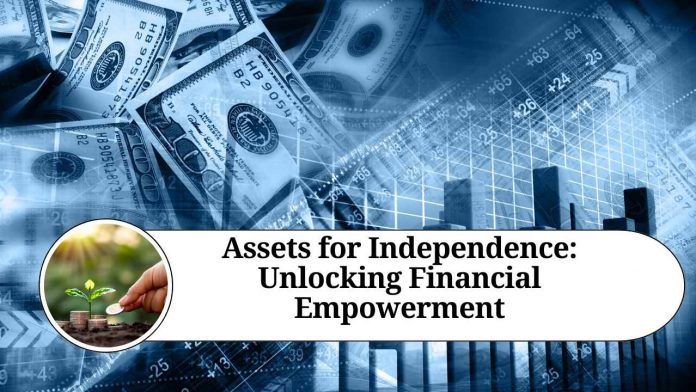Introduction
In today’s fast-paced and dynamic world, financial stability is crucial for individuals and families to thrive. However, many individuals, particularly those with limited incomes, face significant barriers in building a secure financial future. Fortunately, there are programs and initiatives aimed at empowering individuals and families by providing them with the necessary tools and resources to build assets and achieve long-term financial independence. One such program is Assets for Independence (AFI), a transformative initiative that has been instrumental in creating pathways to economic self-sufficiency for countless individuals. In this blog, we will explore the concept of Assets for Independence and shed light on its impact and significance in promoting financial empowerment.
What is Assets for Independence (AFI)?
Assets for Independence (AFI) is a federal program that was established in 1998 with the aim of assisting individuals and families with limited incomes to save, build assets, and achieve financial independence. The program is administered by the U.S. Department of Health and Human Services and operates through a network of non-profit organizations, community-based agencies, and tribal organizations across the country. AFI provides participants with access to financial education, matched savings accounts, and other supportive services that facilitate the accumulation of assets and promote self-sufficiency.
The Pillars of Assets for Independence:
- Financial Education: AFI places a strong emphasis on financial education to equip participants with the knowledge and skills necessary to make informed financial decisions. Through workshops, training sessions, and one-on-one counseling, individuals learn about budgeting, saving, credit management, and asset-building strategies. This empowers participants to take control of their financial well-being and make sound choices for their future.
- Individual Development Accounts (IDAs): A core feature of AFI is the provision of Individual Development Accounts (IDAs). IDAs are matched savings accounts specifically designed to encourage participants to save towards a particular goal, such as homeownership, post-secondary education, or entrepreneurship. For every dollar saved by the participant, AFI provides a predetermined match, effectively doubling or even tripling their savings. This powerful incentive motivates individuals to save consistently and accelerates their progress towards their chosen asset-building goal.
- Supportive Services: AFI recognizes that building assets goes beyond simply saving money. To address the multifaceted needs of participants, the program offers a range of supportive services. These services may include financial coaching, credit repair assistance, access to affordable housing options, entrepreneurship training, and more. By addressing barriers and providing comprehensive support, AFI ensures that participants have the tools and resources necessary to succeed in their asset-building journey.
Impact and Benefits of Assets for Independence:
The Assets for Independence program has yielded significant positive outcomes for individuals and communities across the United States. Here are some key benefits:
- Asset Accumulation: AFI has enabled participants to accumulate assets that provide long-term financial security. Whether it’s homeownership, post-secondary education, or starting a business, participants are empowered to make transformative investments in their futures.
- Economic Mobility: By promoting asset-building and financial literacy, AFI has played a vital role in enhancing economic mobility. Participants can break the cycle of poverty and build a foundation for a better future for themselves and their families.
- Self-Empowerment: AFI instills a sense of self-efficacy and empowerment in participants. By providing the necessary tools and support, the program fosters a belief in one’s ability to achieve financial independence, leading to increased confidence and resilience.
- Community Development: The positive impact of AFI extends beyond individual participants. By strengthening the financial well-being of individuals and families, the program contributes to the overall economic development of communities, promoting stability and growth.
Other Related Blogs: Section 144B Income Tax Act
Frequently Asked Questions (FAQs)
Q. What is Assets for Independence (AFI)?
Assets for Independence (AFI) is a federal program administered by the U.S. Department of Health and Human Services. It aims to help individuals and families with limited incomes build assets and achieve financial independence through financial education, matched savings accounts, and supportive services.
Q. Who is eligible to participate in the Assets for Independence program?
Eligibility criteria may vary depending on the specific AFI project or organization. However, in general, participants should have a low to moderate income, demonstrate a commitment to saving, and be willing to participate in financial education and asset-specific training.
Q. What are Individual Development Accounts (IDAs)?
Individual Development Accounts (IDAs) are a central component of the Assets for Independence program. IDAs are matched savings accounts designed to assist participants in saving towards a specific asset-building goal, such as homeownership, post-secondary education, or starting a business. For every dollar saved by the participant, AFI provides a predetermined match, boosting their savings.
Q. How does the matching funds aspect of AFI work?
The matching funds aspect of AFI varies depending on the project or organization. Typically, the program offers a predetermined match ratio, which means that for every dollar the participant saves, AFI will provide a certain amount of matching funds. This match ratio could range from 1:1 (dollar-for-dollar match) to 2:1 or even 3:1, effectively multiplying the participant’s savings.
Q. What types of supportive services are offered through the AFI program?
AFI recognizes that asset-building involves more than just saving money. Supportive services provided may include financial coaching, credit repair assistance, access to affordable housing options, entrepreneurship training, and other resources tailored to the specific needs of participants. These services aim to address barriers and provide comprehensive support throughout the asset-building journey.
Q. How can I find an Assets for Independence program near me?
To find an AFI program near you, you can visit the official AFI website or contact your local community-based organizations, non-profit agencies, or tribal organizations. They will be able to provide information on the availability of AFI projects in your area and guide you through the application process.
Q. Can participants use AFI funds for any purpose?
No, AFI funds are specifically designated for asset-building goals, such as homeownership, post-secondary education, or business development. The funds cannot be used for personal expenses or unrelated purposes. However, the program provides flexibility within these categories to accommodate participants’ specific asset-building objectives.
Q. Are AFI funds taxable?
No, the funds received through AFI are not considered taxable income. However, it is advisable to consult with a tax professional or refer to the Internal Revenue Service (IRS) guidelines to ensure compliance with any applicable tax regulations.
Q. Can someone participate in the AFI program multiple times?
AFI programs typically limit participation to one IDA account per individual or household. However, rules may vary between different projects or organizations, so it’s best to check with the specific AFI program you are interested in for their policies regarding repeat participation.
Q. How can I learn more about the Assets for Independence program?
To learn more about the Assets for Independence program, you can visit the official AFI website, reach out to the U.S. Department of Health and Human Services, or contact local organizations involved in implementing AFI projects. They can provide detailed information about eligibility requirements, enrollment procedures, and the specific benefits and services offered.




















